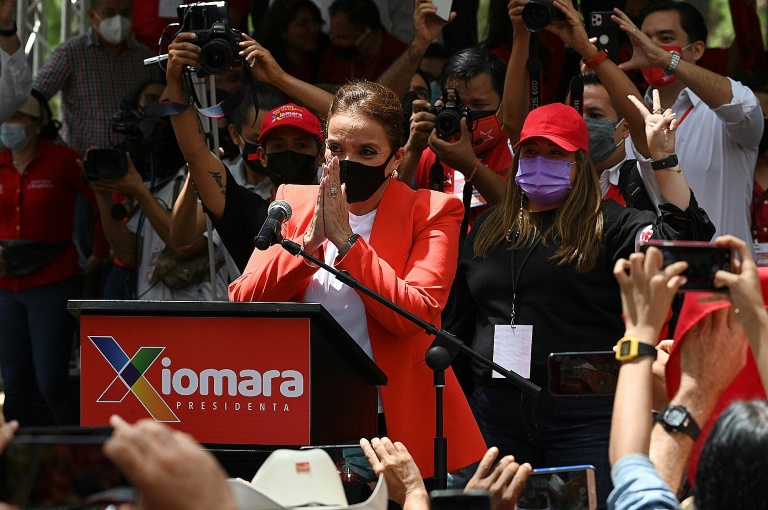Taiwan warned Honduras on Monday against “flashy and false” promises by China after the Latin American nation’s main opposition party vowed to switch diplomatic recognition to Beijing.
Honduran presidential candidate Xiomara Castro earlier said she would “immediately open diplomatic and commercial relations with mainland China” if she wins elections in November.
Castro, the wife of ousted former president Manuel Zelaya, is the candidate for the main left-wing opposition Liberty and Refoundation Party.
Honduras is among only 15 countries that maintain formal relations with Taiwan, which China claims as part of its territory awaiting reunification, by force if needed.
“Our side reminds Honduras that promises by the Chinese government are usually flashy and false, and they are consistent ploys to sabotage Taiwan’s diplomatic relations with our allies,” Taipei’s foreign ministry said in a statement.
The ministry said it was closely monitoring the situation in Honduras and vowed to continue to strengthen their 80-year-old bilateral ties.
Beijing has ramped up pressure on Taiwan since the 2016 election of President Tsai Ing-wen because she rejects its stance that the self-ruled democratic island is part of China.
China has poached seven of Taiwan’s diplomatic allies, including three in Latin America — Panama, El Salvador and the Dominican Republic.
Taiwan’s deputy foreign minister Alexander Yui said in an interview with Honduran media last month that many promises from Beijing were unfulfilled and had left some countries in severe “debt traps”.
Latin America has been a key diplomatic battleground for decades between Taiwan and China since they split in 1949 after a civil war.
Most recently, Taipei has accused Beijing of trying to lure away its allies in the region with “vaccine diplomacy” using promises of badly needed coronavirus shots.
Honduras’ chief cabinet coordinator Carlos Alberto Madero told the Financial Times in May that his country wished to maintain ties with Taiwan but access to vaccines was “much more urgent than anything else… This puts us in a very difficult situation”.











